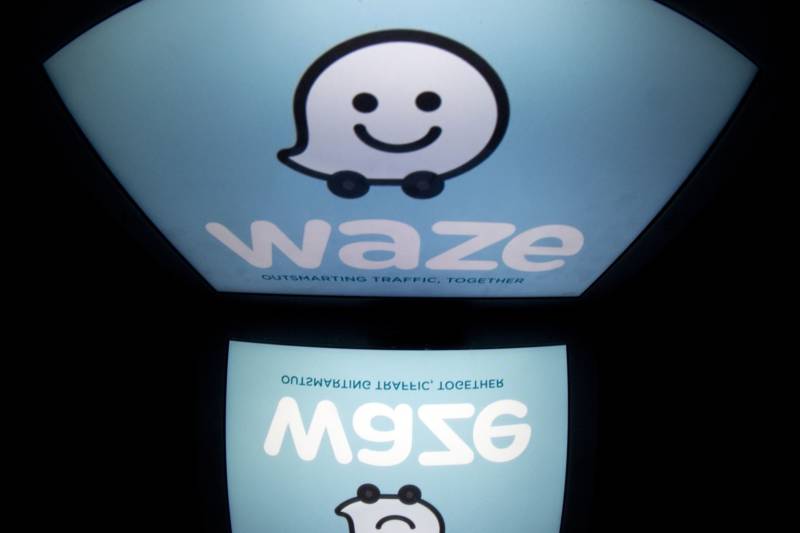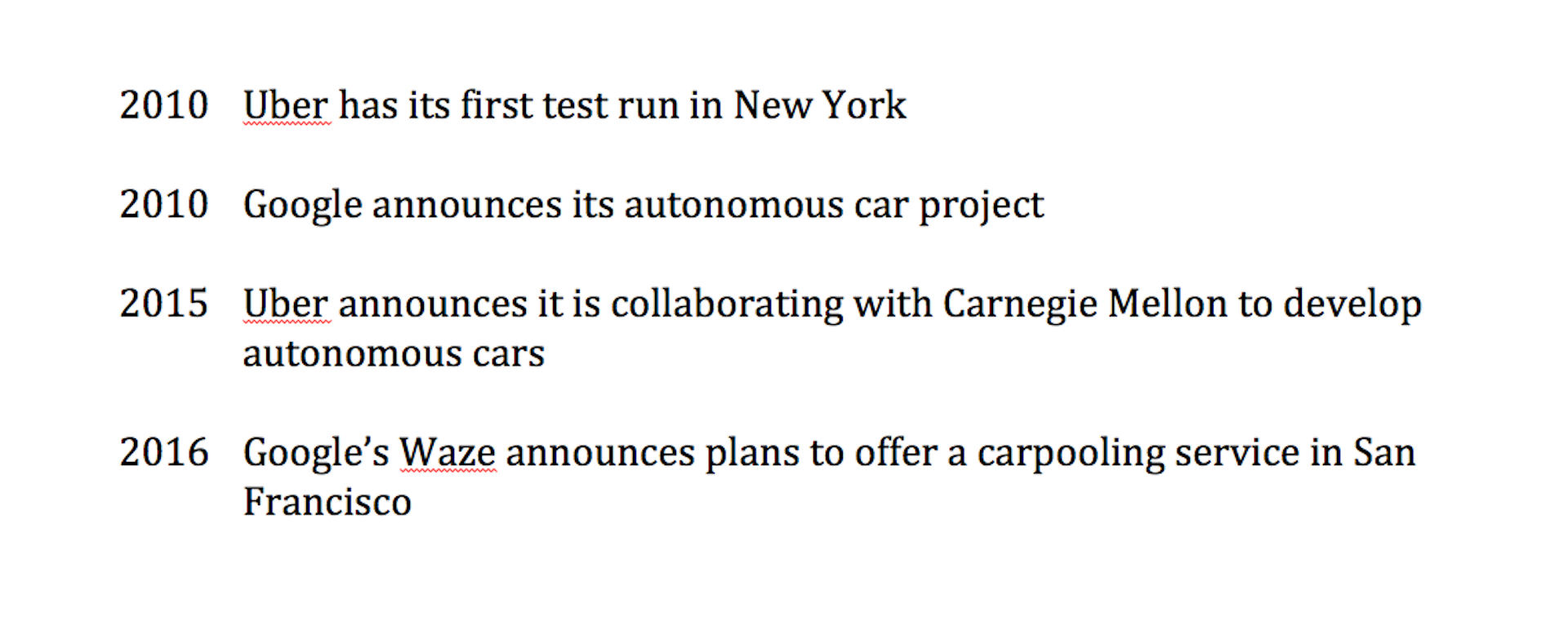Google and Uber Race To Disrupt Transportation -- But It's Not a Turf War Yet

News that Waze, a navigation app owned by Google, is rolling out a carpooling service in San Francisco has been framed as Google's shot across Uber's bow.
And a string of recent news suggests that the two companies, which were once allies, are now becoming adversaries. Google pioneered the self-driving car and now Uber is getting into self-driving cars. Uber basically created ride hailing and now Google is getting into the practice..
So are we seeing an all-out turf war?
"Perhaps a baseball analogy is a little bit more peaceful," said Robert Siegel, a partner at the venture capital firm XSeed and a lecturer at Stanford. "I would say we’re maybe in the bottom of the first inning in a nine-inning game."

Siegel said that ultimately these companies are part of a larger effort to redefine the transportation industry. And it's not just about moving people. Moving goods is a big part of it. Food delivery services like Sprig and Google Express, and self-driving truck start-up Otto, are experimenting with technologies that could upend the traditional industry of moving goods.
These are all pieces in a larger puzzle, the complete picture of which is still to emerge. But the idea goes something like this: On-demand ride companies like Uber are collecting data and developing technology that can make both moving and collecting people (and goods) quicker and more efficient.
Right now, Uber and Lyft are also using that technology to create carpooling services, where you can share a ride and bring down costs. Couple that with autonomous cars, and the big idea here is that car ownership may one day be unnecessary and more costly, which could disrupt the trillion-dollar car industry.
Products like Google Maps and Waze will play an essential role in this transportation revolution, helping suss out the fastest routes and traffic patterns. And autonomous cars will be reliant on such maps, which is why you see everybody from automakers to Uber racing to develop their own maps.
But emerging as a leader in this future transportation market means companies must master all these technologies. Right now, Google has the upper hand in autonomous cars, compared with Uber. However, Uber dominates in ride-hailing technology.
"This is actually a very complex long-term game," Siegel said. That brings us back to his "bottom-of-the-first inning" analogy.
Yes, competition is brewing, and we're starting to see who might emerge as leaders. But these are still early days. When Google and Uber master all these technologies and ones we probably haven't even thought of yet, then we'll see a real turf war.